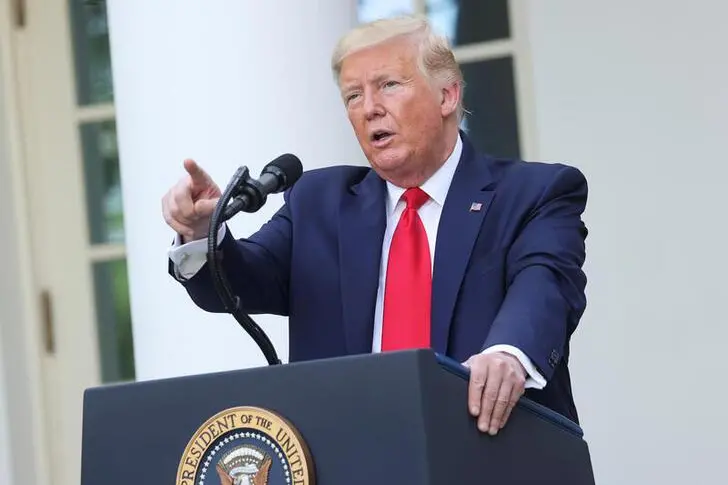PHOTO
SAN FRANCISCO - U.S. sanctions on China over Hong Kong would ratchet up tensions between the two superpowers, but with no obvious goal beyond punishment. President Donald Trump on Friday says he would take steps to slap penalties on officials of the People’s Republic. The first move of its kind would escalate tensions, yet it probably won’t deter Beijing and could spur retaliation.
After months of holding back in response to Hong Kong unrest, the White House has taken aggressive action. A day after the Chinese parliament approved moving forward with legislation tackling secession and subversion in the territory, Trump said he would hold PRC officials linked to “smothering Hong Kong’s freedom” responsible but didn’t provide details. He also said he would eliminate policy exemptions for the city. Earlier this week, Secretary of State Mike Pompeo declared Hong Kong was no longer autonomous, opening the door to ending special treatment relating to travel and trade.
Other pressure points on China, like Trump’s trade war, had a clear end game. At least some tariffs on about $370 billion of Chinese imports would be rolled back if a trade deal was reached. A so-called Phase One pact was signed in January, when Beijing agreed to purchase $200 billion in additional U.S. goods over two years.
It’s unclear what China could do to persuade Washington to roll back potential new sanctions except scrap the Hong Kong law. Trump's predecessor Barack Obama imposed similar penalties on Iran to bring the country to the negotiating table, resulting in a nuclear deal and the easing of sanctions. Trump reinstated the restrictions with the aim of putting more conditions on the pact.
But Beijing probably won’t budge on Hong Kong and the White House knows it. Therefore sanctions and other enforcement actions can only be intended as retribution for the new law, the coronavirus, or economic behavior. Pompeo told Fox News on Thursday that there will be a series of actions against the “tyrannical regime inside of China.” One option is canceling visas for thousands of Chinese graduate students with alleged ties to the military.
The mainland could retaliate by, say, putting restrictions on U.S. companies with significant Chinese business interests like Apple AAPL.O . That in turn could spur more White House action – with the general anti-China sentiment largely shared by both political parties in Congress, too. This time, though, there is no obvious way to end the tit-for-tat.
CONTEXT NEWS
- U.S. President Donald Trump said on May 29 that his government would take the necessary steps to sanction Chinese officials linked to “smothering Hong Kong’s freedom,” but he didn’t provide details. The move came a day after China’s parliament approved a decision to move forward with national-security legislation that would be imposed on Hong Kong. Trump also said the United States would eliminate policy exemptions that gave special treatment to Hong Kong when it comes to export controls, customs and travel. On May 27, U.S. Secretary of State Mike Pompeo declared that Hong Kong was no longer autonomous.
(Editing by Richard Beales and Amanda Gomez) ((gina.chon@thomsonreuters.com; Reuters Messaging: gina.chon.thomsonreuters.com@reuters.net))





















